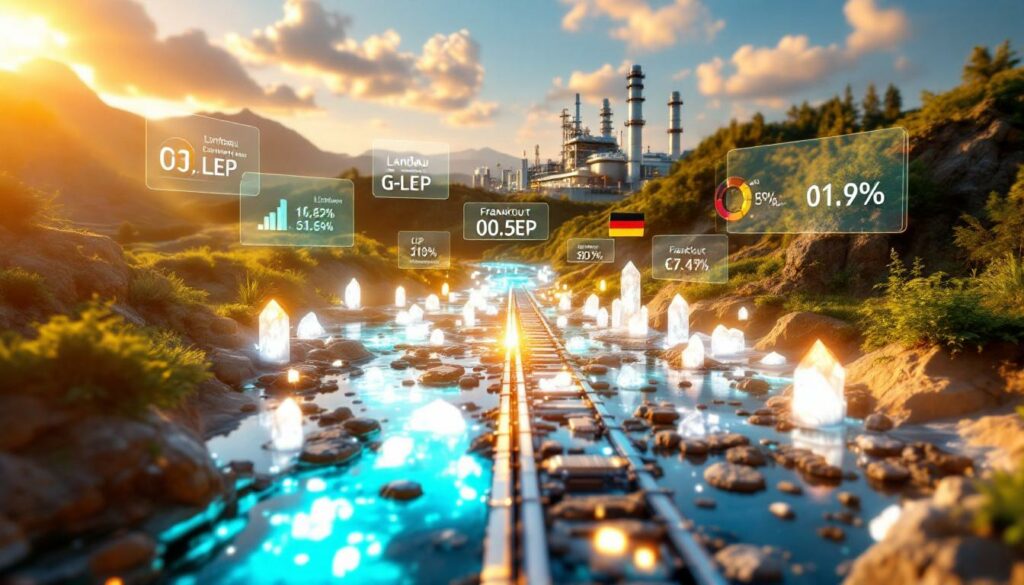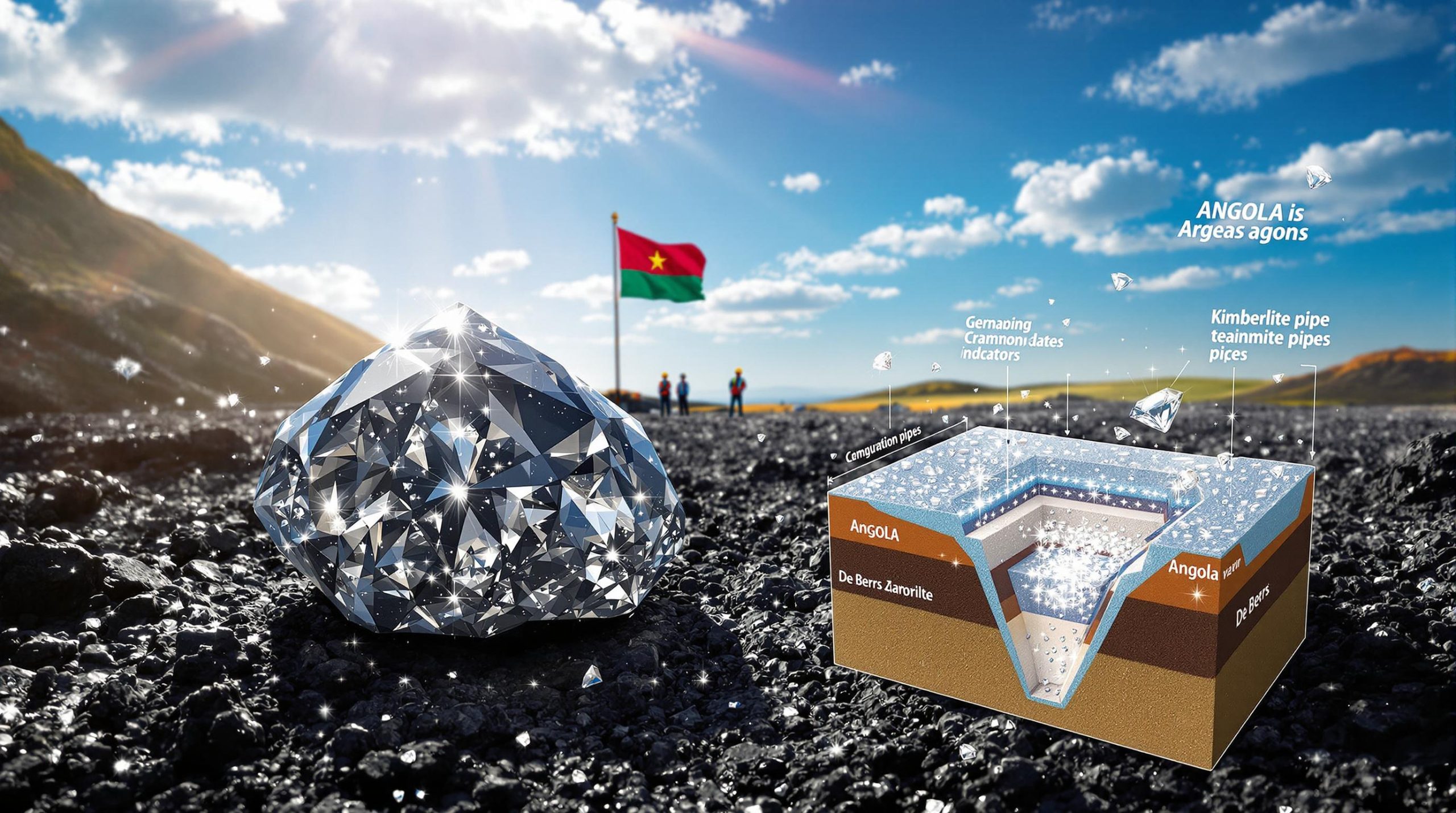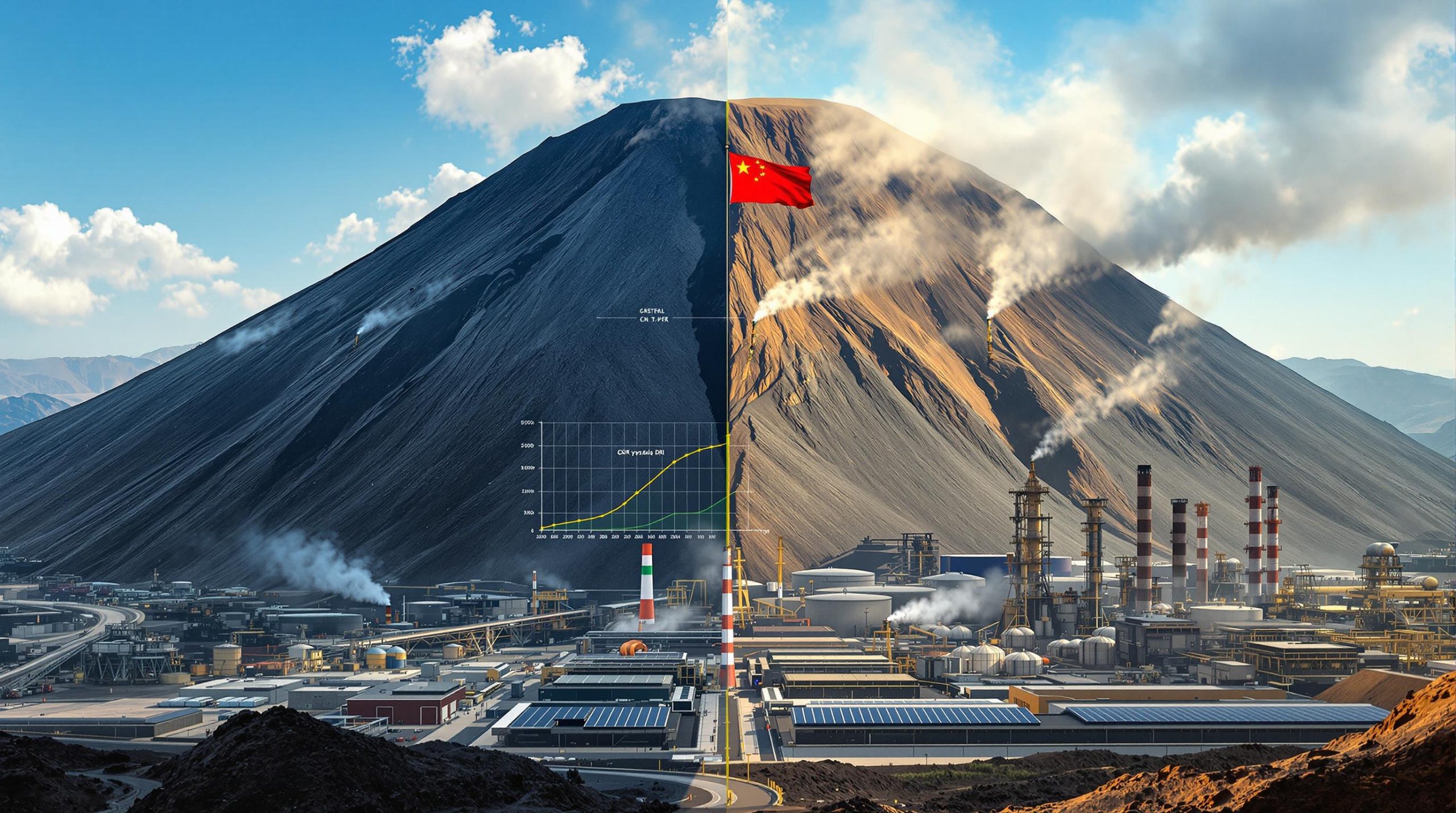German Government Grants Boost Vulcan Energy's Lithium Production Project
In a significant development for Europe's green energy transition, Vulcan Energy has secured substantial financial backing from German governmental bodies to accelerate its innovative lithium production facilities. This funding marks a critical step in establishing Germany's domestic lithium supply chain, essential for the growing electric vehicle sector across Europe.
What Grants Has Vulcan Energy Received from German Governments?
Vulcan Energy has secured two substantial grants totaling approximately €104 million for its Clean Lithium for Battery Cell Production funding project (Li4BAT). This financial support represents a coordinated effort across multiple levels of German government, demonstrating the strategic importance placed on developing domestic lithium production capacity.
The funding comes from a collaborative effort between the German Federal Government and the state governments of Rhineland-Palatinate and Hesse, with the Federal Ministry of Economy and Energy (BMWE) taking the lead role in administration. This multi-tiered approach highlights Germany's commitment to building resilience in critical mineral supply chains as part of a broader energy transition strategy.
Grant Structure and Funding Sources
The grants have been structured within the European Union's Temporary Crisis and Transition Framework (TCTF), a mechanism designed to help member states address economic challenges while transitioning toward sustainable industries. Additionally, the funding is supplemented through Germany's specialized "Resilience and Sustainability of the Battery Cell Production Ecosystem" program, which aims to strengthen domestic battery manufacturing capabilities.
"This substantial government support underscores the critical importance of establishing sovereign lithium production within Europe's borders," notes industry analysts observing the development. "The multi-level governmental approach demonstrates the strategic priority placed on battery materials."
Importantly, the grant structure reflects Germany's federalist approach, with both national and regional governments contributing to the initiative. This collaborative funding model enables broader resource mobilization while ensuring regional economic benefits in the states hosting the production facilities.
How Will the Li4BAT Grants Support Vulcan's Operations?
The €104 million in grants will directly fund two key components of Vulcan Energy's Phase One Lionheart Project, creating an integrated lithium production system spanning from extraction to processing of battery-grade materials.
Dual-Location Production Infrastructure
The funding will enable Vulcan to develop its dual-facility approach to lithium production:
-
Geothermal Lithium Extraction Plant (G-LEP) in Landau, Rhineland-Palatinate: This facility will focus on the extraction of lithium raw materials using Vulcan's innovative geothermal lithium extraction process.
-
Central Lithium Plant (CLP) in Frankfurt, Hesse: This processing facility will refine the raw lithium into battery-quality lithium hydroxide suitable for direct use in battery manufacturing.
This two-site approach creates an integrated domestic supply chain that maximizes efficiency while distributing economic benefits across multiple regions in Germany.
Cris Moreno, Vulcan Energy's Managing Director and CEO, emphasized the grants' significance: "The Li4BAT grant will enable our project to supply sustainable, domestically sourced lithium to the German and European battery EV markets."
The dual-facility design aligns with industry best practices that separate extraction and processing operations for optimal efficiency. By establishing specialized facilities for each stage of production, Vulcan can optimize processes while maintaining tight quality control throughout the production chain.
What Strategic Objectives Do These Grants Address?
The German government's substantial financial commitment to Vulcan Energy's lithium project serves multiple strategic objectives, balancing economic, environmental, and security considerations.
European Supply Chain Resilience
A primary goal of the grants is strengthening Germany's and Europe's critical minerals supply chain resilience. As the EU automotive industry rapidly transitions to electric vehicle production, securing domestic sources of battery materials has become a national security priority.
Currently, Europe depends heavily on imported lithium, primarily from Australia, Chile, and China. This dependence creates vulnerability to supply disruptions, price volatility, and geopolitical pressures. By developing domestic production capacity, Germany aims to reduce these vulnerabilities while creating regional economic opportunities.
"Lithium is the lifeblood of the energy transition and for EV production and is crucial to transitioning Germany and Europe's auto industry into the electric age," stated Cris Moreno, highlighting the strategic importance of the project.
Environmental Sustainability Goals
The grants also support Germany's ambitious climate targets by promoting more sustainable lithium production methods. Traditional lithium extraction, whether through hard-rock mining or evaporation ponds, comes with significant environmental impacts including high water usage, land disturbance, and substantial carbon emissions.
Vulcan's approach, utilizing geothermal energy in the extraction process, aligns with Germany's decarbonization objectives by significantly reducing the carbon footprint associated with lithium production. This alignment with broader climate goals made the project particularly attractive for government funding.
The sustainability credentials of the project support Germany's commitments under the European Green Deal and its national climate action plan, which aims to achieve carbon neutrality by 2045.
How Does This Funding Fit Into Vulcan's Overall Financing Strategy?
The Li4BAT grants represent one component of a comprehensive financing package that Vulcan Energy is assembling for its Phase One Lionheart Project. This multi-source approach demonstrates the company's strategic financing plan for bringing its ambitious lithium production facilities online.
Comprehensive Financing Structure
Vulcan's financing strategy combines multiple funding sources:
- Li4BAT Grants: €104 million for lithium production and processing facilities
- Renewable Energy Grant: A complementary €100 million specifically allocated for the renewable heating aspects of the project
- European Investment Bank Support: A financing envelope of up to €500 million already approved
- Raw Materials Fund Investment: Ongoing negotiations for a potential €150 million investment from the KfW-managed fund
This diversified approach distributes risk while leveraging specialized funding sources for different aspects of the project. The combination of grants, institutional financing, and investment funds creates a balanced financial structure typical of large-scale industrial developments, offering promising investment opportunities 2025.
Timeline and Disbursement Conditions
The grant funding comes with specific timeline requirements:
- Financing Package Deadline: Overall financing must be finalized by September 1, 2025
- Construction Timeline Requirements: Project construction must begin by January 2026
- Investment Completion Target: Raw Materials Fund equity investment planned for completion by March 31, 2026
- Disbursement Schedule: Grant funds to be released over 36 months following eligible expenditures starting October 1, 2025
These conditions create a structured timeline for project development while ensuring accountability for the public funds committed to the project. The pro-rata disbursement approach, tied to eligible expenditures, follows standard practice for large infrastructure grants.
The timeline also highlights the urgency with which Germany is approaching domestic lithium production, with construction required to commence by early 2026.
Why Is This Project Significant for Germany's Industrial Strategy?
The substantial government support for Vulcan's lithium project reflects its central role in Germany's broader industrial strategy, particularly as the country positions itself for leadership in the electric vehicle revolution.
Strategic Industrial Development
Germany's automotive sector, which accounts for approximately 5% of the country's total GDP and employs around 800,000 people, faces significant disruption from the transition to electric vehicles. Securing domestic lithium supply represents a critical component of maintaining Germany's competitive edge in automotive manufacturing.
The project supports Germany's "National Industrial Strategy 2030," which identifies battery production as a key technology area where German and European companies must maintain competitiveness. By establishing domestic lithium production, Germany aims to preserve its manufacturing leadership while transitioning to new technologies.
"This investment in domestic lithium production demonstrates Germany's commitment to maintaining its industrial base through the clean energy transition," note industry observers following the development.
Economic Impact Considerations
Beyond securing supply chains, the project delivers substantial regional economic benefits. The dual-location approach spreads investment across both Rhineland-Palatinate and Hesse, creating high-skill jobs in extraction technology, chemical processing, and related services.
The project also positions Germany at the forefront of sustainable lithium production technology, creating potential for technology exports and establishing German leadership in this growing field. This aligns with Germany's longstanding strength in exporting advanced industrial technology and environmental solutions.
The project's renewable energy component further supports Germany's position in geothermal technology, creating potential synergies with the country's established renewable energy sector.
What Makes Vulcan Energy's Approach to Lithium Production Distinctive?
Vulcan Energy's production method distinguishes itself from conventional lithium extraction techniques through its innovative integration of geothermal energy and its reduced environmental footprint.
Innovative Extraction Technology
Vulcan's approach utilizes naturally occurring lithium contained within geothermal brines in Germany's Upper Rhine Valley. Rather than mining hard rock or using extensive evaporation ponds, Vulcan extracts lithium from the same geothermal brine used to generate renewable energy.
The process involves:
- Extracting hot, lithium-rich brine from deep underground reservoirs
- Utilizing the heat for renewable energy generation
- Extracting the lithium through a specialized absorption process
- Returning the brine to the reservoir through reinjection wells
This closed-loop system minimizes surface disruption while maximizing resource utilization, extracting both energy and minerals from the same source.
Sustainability Credentials
The sustainability advantages of Vulcan's approach include:
-
Carbon Reduction: By powering the extraction process with geothermal energy, the operation significantly reduces greenhouse gas emissions compared to conventional methods.
-
Water Conservation: Unlike evaporative processes used in South American lithium production, which consume massive amounts of water in arid regions, Vulcan's closed-loop system minimizes water consumption.
-
Land Use Efficiency: The relatively small surface footprint compared to traditional mining operations reduces habitat disruption and land use conflicts.
These environmental advantages align perfectly with Germany's climate objectives while addressing growing consumer and regulatory demands for responsibly sourced battery materials. As automakers increasingly scrutinize their supply chains for environmental impacts, Vulcan's approach offers a compelling alternative to conventional sources.
What Challenges Must Vulcan Energy Navigate to Successfully Implement the Project?
Despite the substantial government support, Vulcan Energy faces several significant challenges in executing its ambitious lithium production plans within the required timeframe.
Execution Risks and Mitigation
A primary challenge involves scaling the technology from pilot to industrial production. While Vulcan has demonstrated the viability of its extraction process at smaller scales, achieving consistent, cost-effective production at commercial volumes represents a significant technical challenge.
The tight timeline imposed by the grant conditions adds additional pressure. With financing required to be finalized by September 2025 and construction commencing by January 2026, Vulcan faces an accelerated development schedule that leaves limited room for delays.
Regulatory compliance presents another challenge, as the project must navigate Germany's stringent environmental regulations, particularly around geothermal drilling and chemical processing. While the government support signals political backing, the company must still complete all required permitting processes.
Financial Considerations
While the grants provide substantial support, Vulcan must still secure the remaining components of its financing package, including:
- Finalizing the €150 million investment from the Raw Materials Fund
- Meeting conditions for the European Investment Bank financing
- Managing potential cost escalation during the construction phase
The company must also demonstrate the long-term economic viability of its production process, ensuring that operating costs remain competitive with established global lithium producers. As a first-mover in European lithium production, Vulcan lacks regional benchmarks for cost comparison, adding complexity to financial planning.
"The greatest challenge for any new extraction technology is consistently achieving target recovery rates and quality specifications at commercial scale," note industry experts familiar with lithium production.
What Does This Development Mean for Europe's Battery Supply Chain?
The establishment of domestic lithium production capacity represents a significant milestone in Europe's efforts to build a resilient and sustainable battery supply chain, with implications extending well beyond Germany's borders.
Strategic Supply Chain Implications
Europe currently relies almost entirely on imported lithium, with the vast majority coming from Australia, Chile, Argentina, and China. This dependence creates vulnerabilities, particularly as demand for lithium is projected to increase dramatically with the accelerating transition to electric vehicles.
By establishing domestic production, Europe begins addressing this strategic vulnerability while reducing the embodied carbon associated with long-distance transportation of materials. This localization also potentially improves supply chain transparency and reduces exposure to price volatility in global markets.
The project supports the European Battery Alliance's objective of establishing a complete battery value chain within Europe, from raw materials to recycling. By securing the lithium component of this chain, Europe strengthens its position in the rapidly growing battery ecosystem.
Market Position and Competitive Landscape
As a first mover in European lithium production, Vulcan establishes an early leadership position that could yield significant competitive advantages. The company's relationships with European automakers and battery manufacturers could be strengthened through geographic proximity and supply chain integration.
The project may also influence pricing dynamics in the European lithium market. While global prices will remain the primary benchmark, local production could potentially offer more stable pricing through reduced transportation costs and currency exchange risks.
The establishment of domestic production may also accelerate industry clustering, with battery manufacturers and related industries potentially locating facilities near the lithium production to minimize logistics costs and maximize supply chain efficiency. This development follows broader industry evolution trends and may encourage further lithium industry incentives throughout Europe.
FAQ: Vulcan Energy's German Government Grants
What is the total value of grants received by Vulcan Energy?
The combined grants total approximately €104 million specifically for the Li4BAT project, with an additional €100 million grant for the renewable heating component, bringing the total government support to approximately €204 million.
When will Vulcan Energy begin construction on the funded facilities?
According to grant conditions, construction must commence by January 2026, with financing arrangements to be completed by September 1, 2025.
How will the grant money be distributed?
The Li4BAT grant will be disbursed proportionally over a 36-month period following eligible expenditures starting from October 1, 2025.
What products will Vulcan Energy produce with this funding?
The facilities will produce lithium raw materials at the Geothermal Lithium Extraction Plant (G-LEP) and battery-quality lithium hydroxide at the Central Lithium Plant (CLP), specifically designed for the European battery and electric vehicle industries.
How does this project align with EU climate goals?
The project supports EU climate objectives by establishing a low-carbon lithium supply chain, reducing transportation emissions from imports, and utilizing renewable geothermal energy in the production process, contributing to the substantial decarbonization of the lithium supply chain.
Want to Invest in the Next Major Mineral Discovery?
Discovery Alert's proprietary Discovery IQ model instantly notifies investors of significant ASX mineral discoveries like those from Vulcan Energy, transforming complex data into actionable investment insights. Visit the Discovery Alert discoveries page to understand how major mineral discoveries can generate substantial returns and position yourself ahead of the market.




